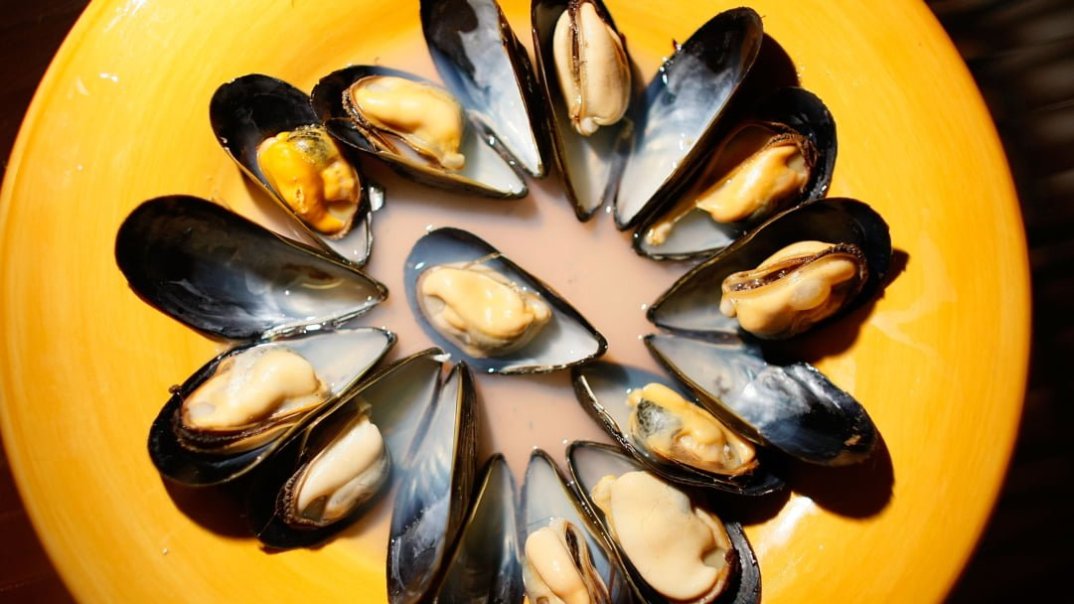Yikes! This drug is all up in Washington’s shellfish

You might want to think twice before consuming too much shellfish—specifically mussels—from Washington’s Puget Sound.
The Washington Department of Fish and Wildlife conducted a study and discovered that mussels in the Pacific Ocean inlet contained oxycodone, an opioid used to treat moderate and severe pain, reports CNN.
But wait … the study’s findings get even worse. In addition to oxycodone, the mussels also tested positive for antidepressants, several types of antibiotics, as well as the same chemicals found in detergents and cleaning products.
“The doses of oxycodone that we found in mussels are like 100 to 500 times lower than you would need for an adult male therapeutic dose,” Jennifer Lanskbury, a biologist with the department, explained to CNN. “So, you would have to eat 150 pounds of mussels from these contaminated areas to even get a small dose. But just the fact that it’s present tells us it is getting into our waters, at least in urban areas.”
READ MORE: Sixteen Atlanta postal workers charged with taking bribes to deliver drugs
Lanksbury said the pharmaceuticals are likely coming out of Washington’s wastewater treatment plants, which process water from toilets, private homes and hospitals.
“These drugs, we’re taking them, and then we’re excreting them in our urine so it gets to the wastewater treatment plant in that way,” Lanksbury said. “Some people, unfortunately, flush their drugs down the toilet, and that’s a huge source of these pharmaceuticals.”
Every other year, the department specifically monitors herring, English sole, Chinook salmon and mussels for contaminants.
READ MORE: GOP lawmaker says black people can’t handle marijuana due to ‘their genetics’
Lanksbury pointed out that “mussels have a simpler system than fish, and that makes them great for monitoring.” The
Nearly two decades ago, the U.S. Geological Survey conducted a study and found “measurable amounts” of medications in a whopping 80 percent of water samples that were collected from 139 steams across 30 states.
Urging Seattle residents to be mindful of “what they do at home,” Lanskbury remains hopeful, adding that “the Puget Sound is a jewel in Washington, and if we all work together to keep it clean, we can make great strides.”
